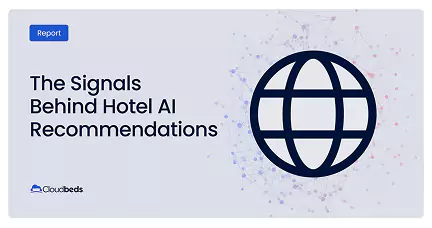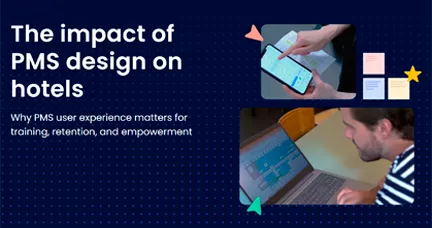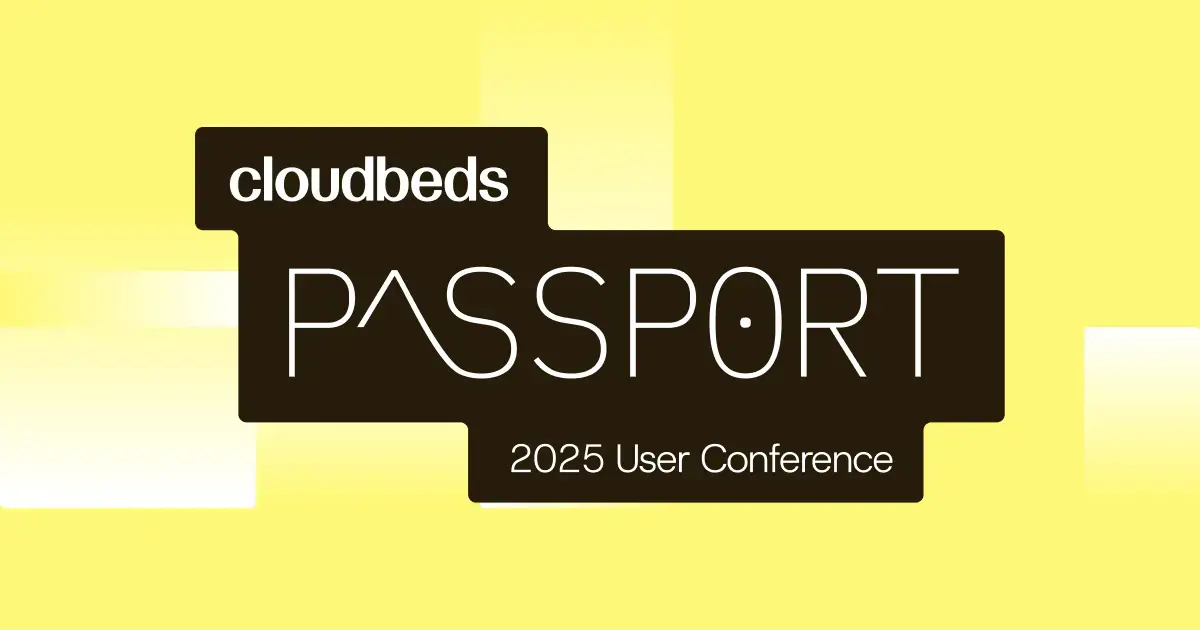
Every hotelier knows the thrill of a last-minute booking—until it turns into a costly scam. Fraudulent bookings and payment scams are becoming more frequent and sophisticated.
What looks like a legitimate reservation can quickly result in chargebacks, lost revenue, or even outright theft. A single scam can cost your property thousands of dollars, lead to penalties, and erode guest trust if sensitive data is compromised.
In this article, we break down how hotels can strengthen their fraud detection strategy and train their team to spot suspicious behavior.
What are fraudulent payment and hotel booking scams?
Fraudulent hotel bookings and payment scams occur when bad actors exploit your hotel reservation and payment systems to steal money, stay without paying, or access sensitive information like credit card numbers or guest IDs.
Unlike phishing, these scams are highly transactional and often happen in plain sight–via your hotel website, email, SMS messages, social media, or even in person at the front desk. They leave your property exposed to revenue loss, chargebacks, and potential reputational damage.
4 reasons hotels are targeted
Hotels are uniquely vulnerable to booking and payment scams. Here’s why:
- High transaction volume: A constant stream of direct and OTA bookings makes it easy for fraudulent reservations to go unnoticed.
- Delayed identity checks: Payment and ID aren’t usually confirmed until check-in.
- Staff turnover: Inexperienced or temporary staff may not know how to recognize a red flag or properly verify a guest’s credit card.
- Valuable data at stake: Hotels collect valuable guest information—from email addresses and phone numbers to full credit card details and billing addresses
How scammers operate
Fraudsters are becoming increasingly clever – blending legitimate-looking bookings with subtle tactics that exploit hotels’ weaknesses. Here are some of the ways they do that.
1. They use stolen credit cards
Scammers will often book using stolen or unauthorized cards, aiming to get through the check-in process before a chargeback occurs
Red flags to look for:
- The guest name doesn’t match the credit card or ID
- Multiple failed payment attempts before one succeeds
- Pressure to skip standard verification steps
2. They create urgency
Overpayment scams often involve someone “accidentally” paying too much and demanding a quick refund via wire, cash, or another method that bypasses normal refund policies.
Red flags to look for:
- Claims of overpayment with urgent refund requests
- Push to refund a different card or bank
- Vague or generic group names
Spoofed emails and calls may appear to come from Booking.com, Airbnb, or other booking websites, requesting urgent changes to a reservation or payment method.
Red flags to look for:
- Messages sent from suspicious domains or strange SMS numbers
- Requests to update credit card information or send money to a new account
- Calls pressuring staff to act quickly or risk cancellation penalties
4. They fake group or corporate bookings
Fraudsters may pose as a company or event organizer booking several hotel rooms, only to cancel last minute or use the booking as a cover for overpayment/refund scams.
Red flags to look for:
- Last-minute bulk bookings with little detail
- Frequent changes to payment methods
- Urgent requests for partial refunds before arrival
Training your team to spot suspicious behavior
Scammers often rely on urgency, confusion, or inconsistency to trick hotel staff into skipping important steps. With the right training, your team can confidently slow things down and prevent costly mistakes.
Here’s how you can build fraud awareness into your daily operations:
Teach staff to verify, not assume
Make it a standard practice for front desk staff to double-check that:
- The name on the booking matches the name on the ID and credit card
- Refunds are only issued to the original form of payment
- Emails or calls requesting changes come from verified domains or known contacts
Create a safe way to escalate red flags
Not every team member will feel comfortable denying a request – but they should feel confident escalating anything that seems off. Encourage them to pause, take their time, and ask a manager for a second opinion when something feels off.
Simulate common scam scenarios
Simulate real-world scams during team meetings and regular training sessions. Be sure that these simulations, along with other training modules, are a part of every new hire’s onboarding process and are documented in easily accessible standard operating procedures (SOPs).
Avoid scams at your front desk.
This SOP is built to simplify complex processes and eliminate guesswork
How to strengthen your fraud prevention strategy
Preventing booking and payment scams isn’t just about frontline vigilance–it’s about building smart, layered protections into your operations. Here are practical ways to tighten your defenses.
1. Use preauthorization and secure payment tools
Credit card preauthorization is an easy way to validate payment before the guest arrives. It can help catch stolen card details early and reduce chargebacks. Be sure your payment processor supports tools like AVS (Address Verification Service), 3D Secure, and tokenization—and that your team never stores card info in unsecure systems.
2. Integrate ID verification into the check-in process
Scammers often rely on the fact that hotels don’t verify guest identities until check-in—and even then, the process can be inconsistent. Whether you’re using a front desk or digital check-in, make ID verification part of your standard workflow.
Digital tools can help match the ID to the reservation details and capture a copy for your records. If you’re accepting group or corporate bookings, ask for additional verification, such as a company email address or proof of affiliation. These simple steps can help weed out suspicious activity without adding friction for legitimate guests.
3. Set clear refund and chargeback policies
Scam tactics like overpayment fraud or friendly fraud often rely on vague or flexible refund policies. Protect your team and your property by clearly outlining how refunds are handled—and sticking to it.
Refunds should always go back to the original form of payment. Never issue a refund to a different card or send funds via wire transfer, even if the guest insists. Including these policies in your booking confirmations can discourage fraud attempts before they start. Internally, make it standard to document every refund request, including who approved it and under what circumstances.
4. Monitor for unusual patterns in bookings
Fraud often follows a pattern—and your team can get better at spotting it with a little awareness. Watch for reservations that include:
- High-value bookings made at the last minute
- Multiple failed payment attempts followed by success on a different card
- Generic or incomplete guest contact information
If your PMS supports custom alerts or flags, use them to highlight risky behaviors in real time. Cloudbeds, for example, uses machine learning to continuously monitor potential threats, letting hotels know when fraudulent activities occur.
Staying alert
Booking and payment scams may be getting more sophisticated, but so are your defenses. By empowering your team to ask questions, strengthening your verification processes, and staying informed about fraud trends, your hotel will be far better equipped to stop scams before they do damage—protecting your revenue, your guests, and your reputation.
Peace of mind, built in.
Cloudbeds checks all the boxes on global security standards.



